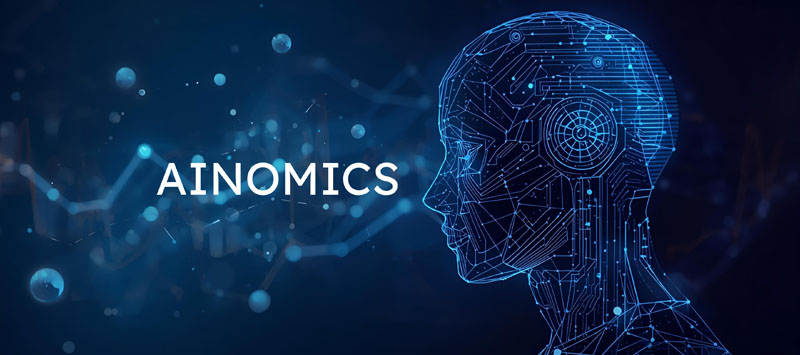
AINOMICS
 |
Afreen Deenar B.Sc., 25ECOA01, Department of Economics School of Commerce, Accounting and Finance Kristu Jayanti (Deemed to be University) |
Why economics and AI should go hand-in-hand?
The first thing that attracted me to join Kristu Jayanti (Deemed to be University) was the introduction of the Bachelor of Science in Applied Economics. Most colleges offered a BA or a simple B.Sc., but not both. In contrast, learning applications in Economics helps students enhance their confidence to deal with real-world scenarios by improving their analytical, critical thinking and problem-solving skills.
As the title suggests, Why should Economics and AI go hand in hand? Do we even need AI in economics? Will AI replace the jobs of the economics undergraduates and postgraduates?
As an undergraduate student of BSc in Applied Economics, I think these are some of the questions that every Economics student, whether currently pursuing a career or willing to pursue a career in economics, should ask.
Another thing that grabbed my attention after joining the University was the syllabus. When I went through it, I discovered that the Department of Economics has introduced AI in our curriculum to support students in getting the hang of AI. This will help the students become resourceful and generate better outcomes using AI in economics to help us cope with the competition our generation faces in the current job market. Especially in this era where AI has become necessary, it simplifies work, saves time, and reduces burdens, ultimately increasing productivity.
The main reason I believe Economics and AI should go hand in hand is that it will help us in many ways, like advanced forecasting and modelling, which will provide us with accurate results on inflation, GDP and unemployment rates, rather than trusting the traditional modelling methods, which aren’t accurate and unreliable.
It can also enhance behavioural economics by analysing unstructured data from online platforms, such as what they are purchasing and price sensitivity. This gives economists, employees and firms a solid foundation to develop pricing strategies and policies.
I believe AI cannot take the jobs of economists, as economics involves ever-changing human judgments and behaviour according to their likes and dislikes, giving economists the chance to develop models based on new phenomena, for example, how AI will affect individuals. This requires creativity and new ways of thinking, whereas AI will generate results on what already exists, but that doesn’t mean we don’t need AI.
Economics and AI should go parallel because they can be used in places or tasks where a lot of data exists, or heavy data, and good knowledge of AI will save us time and energy.
Hence, I think the Department of Economics has done a great job introducing AI into the curriculum, making us competent enough to face real-world problems more confidently and positively in this fast-paced generation of new innovations and discoveries.